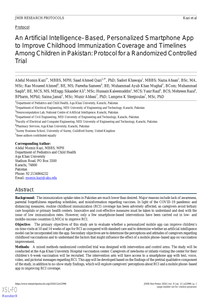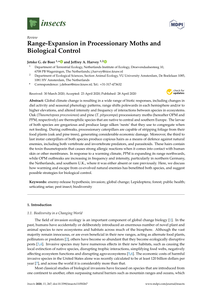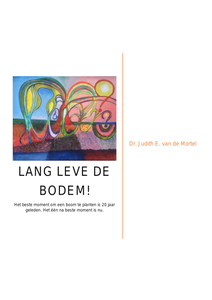A bacterium belonging to the Bacillus firmus/lentus-complex and capable of growth on native potato starch was isolated from sludge of a pilot plant unit for potato-starch production. Utilization of a crude enzyme preparation obtained from the culture fluid after growth of the microorganism on native starch, resulted in complete degradation of native starch granules from potato, maize and wheat at a temperature of 37°C. Glucose was found as a major product. Production of maltose, maltotriose and maltotetraose was also observed. Native-starch-degrading activity (NSDA) could be selectively adsorbed on potato-starch granules, whereas soluble-starch-degrading activity (SSDA) remained mainly in solution. The use of such a starch-adsorbed enzyme preparation on native starch resulted in a completely changed product pattern. An increase in oligosaccharides concomitant with less glucose formation was observed. An increased conversion of soluble starch to maltopentaose was possible with this starch-adsorbed enzyme preparation. It is concluded that NSDA comes from α-amylase(s) and SSDA from glucoamylase(s) and/or α-glucosidase(s). Cultivation of B. firmus/lentus on glucose, maltose, or soluble starch resulted in substantially smaller quantities of (native) starch-degrading activity.
LINK
De fysische, chemische en microbiologische gevaren van het opwerken van vezelcomponenten uit reststromen van uien zijn geanalyseerd op basis van literatuuronderzoek. Uienreststromen zijn geschikt voor het winnen van olie door middel van stoomdestillatie of eiwitten door middel van iso-elektrische precipitatie. Bij deze processen wordt ook de uienschil verwerkt. Er blijft o.a. een vezelrijke fractie over die in principe geschikt is voor humane consumptie. Fysische vreemde delen vormen zeer zelden een acuut risico voor de gezondheid. De meest voorkomende pesticiden op ui zijn maleïnehydrazide, fluopyram en fipronil. Incidenteel kan de maximaal toelaatbare hoeveelheid van een pesticide overschreden worden, maar dit heeft geen acute nadelige gezondheidsgevolgen. Van zware metalen is er alleen Europese wetgeving voor gehaltes aan lood en cadmium in ui. Microbiologische gevaren voor de processen zijn gerelateerd aan vegetatieve cellen, toxines of sporen van pathogenen. Vegetatieve cellen zijn alleen een risico voor onverhitte vezelfracties of na kruisbesmetting. Toxines kunnen nog actief zijn na stoomdestillatie en ook na pasteurisatie van eiwitpasta. Hetzelfde geldt voor de sporen van bacteriën. Om ontkieming van sporen te voorkomen moet de uienstroom boven 48 °C gehouden worden of snel worden gekoeld .
MULTIFILE

Background: The immunization uptake rates in Pakistan are much lower than desired. Major reasons include lack of awareness, parental forgetfulness regarding schedules, and misinformation regarding vaccines. In light of the COVID-19 pandemic and distancing measures, routine childhood immunization (RCI) coverage has been adversely affected, as caregivers avoid tertiary care hospitals or primary health centers. Innovative and cost-effective measures must be taken to understand and deal with the issue of low immunization rates. However, only a few smartphone-based interventions have been carried out in low- and middle-income countries (LMICs) to improve RCI. Objective: The primary objectives of this study are to evaluate whether a personalized mobile app can improve children’s on-time visits at 10 and 14 weeks of age for RCI as compared with standard care and to determine whether an artificial intelligence model can be incorporated into the app. Secondary objectives are to determine the perceptions and attitudes of caregivers regarding childhood vaccinations and to understand the factors that might influence the effect of a mobile phone–based app on vaccination improvement. Methods: A mixed methods randomized controlled trial was designed with intervention and control arms. The study will be conducted at the Aga Khan University Hospital vaccination center. Caregivers of newborns or infants visiting the center for their children’s 6-week vaccination will be recruited. The intervention arm will have access to a smartphone app with text, voice, video, and pictorial messages regarding RCI. This app will be developed based on the findings of the pretrial qualitative component of the study, in addition to no-show study findings, which will explore caregivers’ perceptions about RCI and a mobile phone–based app in improving RCI coverage. Results: Pretrial qualitative in-depth interviews were conducted in February 2020. Enrollment of study participants for the randomized controlled trial is in process. Study exit interviews will be conducted at the 14-week immunization visits, provided the caregivers visit the immunization facility at that time, or over the phone when the children are 18 weeks of age. Conclusions: This study will generate useful insights into the feasibility, acceptability, and usability of an Android-based smartphone app for improving RCI in Pakistan and in LMICs.
DOCUMENT

The quantification and identification of new plasmid-acquiring bacteria in representative mating conditions is critical to characterize the risk of horizontal gene transfer in the environment. This study aimed to quantify conjugation events resulting from manure application to soils and identify the transconjugants resulting from these events. Conjugation was quantified at multiple time points by plating and flow cytometry, and the transconjugants were recovered by fluorescence-activated cell sorting and identified by 16S rRNA sequencing. Overall, transconjugants were only observed within the first 4 days after manure application and at values close to the detection limits of this experimental system (1.00–2.49 log CFU/g of manured soil, ranging between 10–5 and 10–4 transconjugants-to-donor ratios). In the pool of recovered transconjugants, we found amplicon sequence variants (ASVs) of genera whose origin was traced to soils (Bacillus and Nocardioides) and manure (Comamonas and Rahnella). This work showed that gene transfer from fecal to soil bacteria occurred despite the less-than-optimal conditions faced by manure bacteria when transferred to soils, but these events were rare, mainly happened shortly after manure application, and the plasmid did not colonize the soil community. This study provides important information to determine the risks of AMR spread via manure application.
LINK
Global climate change is resulting in a wide range of biotic responses, including changes in diel activity and seasonal phenology patterns, range shifts polewards in each hemisphere and/or to higher elevations, and altered intensity and frequency of interactions between species in ecosystems.Oak (Thaumetopoea processionea) and pine (T. pityocampa) processionary moths (hereafter OPM and PPM, respectively) are thermophilic species that are native to central and southern Europe. The larvae of both species are gregarious and produce large silken ‘nests’ that they use to congregate when not feeding. During outbreaks, processionary caterpillars are capable of stripping foliage from theirfood plants (oak and pine trees), generating considerable economic damage. Moreover, the third to last instar caterpillars of both species produce copious hairs as a means of defence against naturalenemies, including both vertebrate and invertebrate predators, and parasitoids. These hairs contain the toxin thaumetopoein that causes strong allergic reactions when it comes into contact with humanskin or other membranes. In response to a warming climate, PPM is expanding its range northwards, while OPM outbreaks are increasing in frequency and intensity, particularly in northern Germany,the Netherlands, and southern U.K., where it was either absent or rare previously. Here, we discuss how warming and escape from co-evolved natural enemies has benefitted both species, and suggest possible strategies for biological control.
DOCUMENT

Inaugurele rede uitgesproken op 9 mei 2019 door Dr. J.E. (Judith) van de Mortel bij de benoeming tot lector “Gezonde plant op een vitale en duurzame bodem” aan HAS Hogeschool Venlo. De krant werd uitgegeven ter ere van de inaugurele rede. Dit deed ze op een bijzondere manier: alle genodigden gingen met een denkbeeldige tijdmachine vooruit naar het jaar 2030 waar ze Judith ontmoetten. Judith keek vervolgens terug naar het jaar 2019 en stelde dat ze hoopt dat de sector in de tussenliggende jaren bereikt heeft dat alle agrarische bodems in Nederland duurzaam beheerd worden door verschillende aanpakken te combineren. Om dit te illustreren schetste ze een beeld van hoe de agrarische onderneming er in 2030 uitziet. Met het lectoraat wil ze hieraan bijdragen. De krant is dan ook geschreven alsof het 9 mei 2030 is.
MULTIFILE

Publicatie bij de rede, uitgesproken bij de aanvaarding van het ambt als lector Green Biotechnology aan Hogeschool Inholland te Amsterdam op 20 mei2015 door dr. C.M. Kreike
DOCUMENT

The "SporeSpotter" project aims to develop an advanced bacterial spore detection platform for the dairy industry. Bacterial spores pose serious health and economic risks such as from Clostridium Tyrobutyricum and Bacillus cereus species. These spores can survive standard pasteurization processes and lead to contamination in dairy products. Even a low number present can cause serious consequences. Especially, the request of Clostridial spore detection related to cheesemaking process is urgent for milk quality monitoring. The related late blowing defect caused by these spores can affect up to 10-25% of hard cheese production, resulting in significant financial losses amounting to millions of euros annually [1]. Our proposed solution integrates particle-based selection, magnetic enrichment and Surface-Enhanced Raman Scattering (SERS) technology to detect Clostridium Tyrobutyricum spores in milk samples. This innovative approach promises a fast, simple, and accurate method for identifying low concentrations of bacterial spores, reducing detection times from days to hours. By collaborating with academic and industry partners Qlip BV, Avantes BV, Nostics BV, PE4A BV and NobleBio BV, the Applied Nanotechnology group (ANT) of Saxion will develop a proof-of-concept sensing technology that can potentially detect bacterial spore levels down to 102 CFU/ml in real milk samples, improving safety and efficiency in the dairy industry. This project is critical to meet the growing demand for rapid testing solutions in the food sector while ensuring compliance with stringent European regulations on food safety. The technology potentially could be extended to broad industrial applications in healthcare and environmental monitoring.